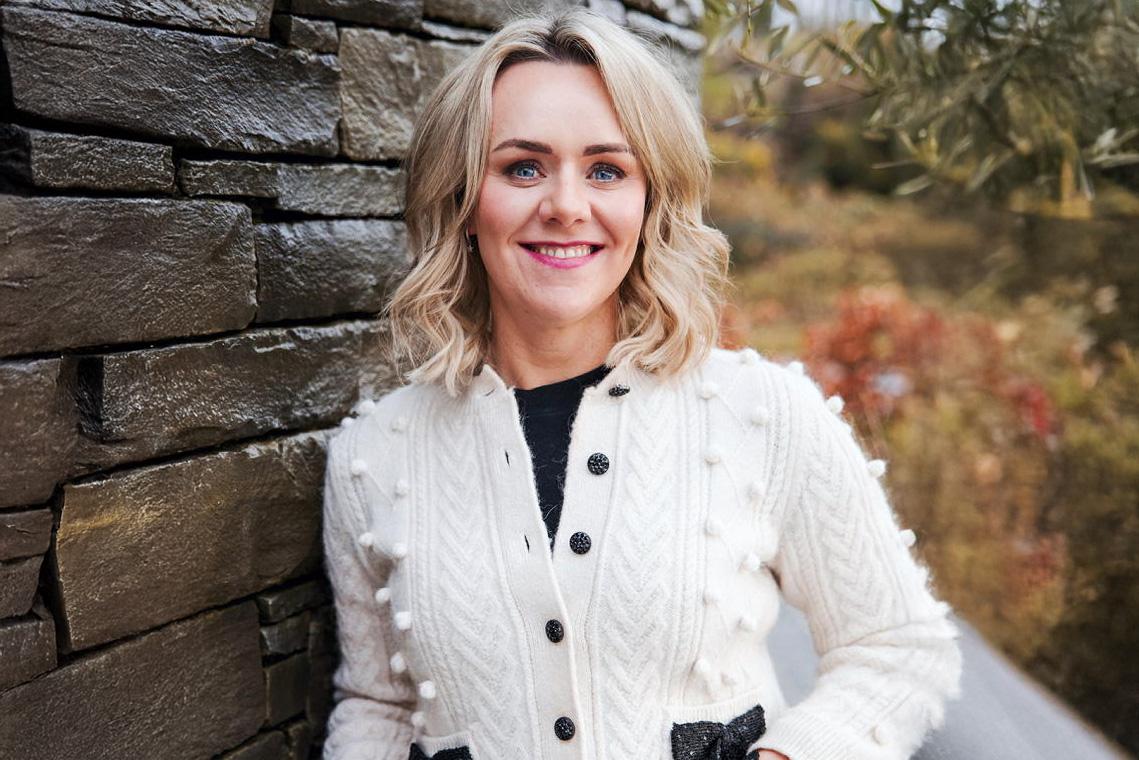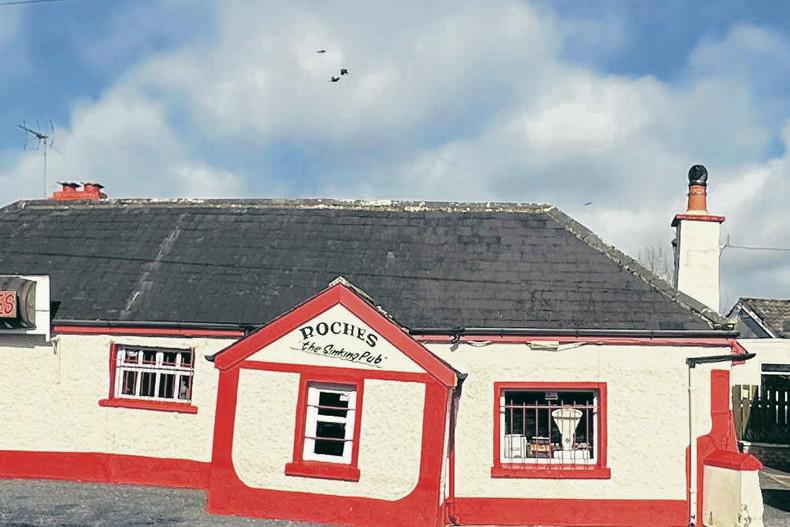It was wonderful to win a gong at the IMRO Radio Awards, which were held in Kilkenny last Friday night. RTE TV came into being on New Year’s Eve in 1961 and, earlier this year, I had an idea to have a look at the station’s rich tradition of agricultural and rural programming on both radio and television.
For those of us old enough to remember ‘two-channel land’, RTE broadcast many farming programmes - with the iconic Michael Dillon reading cattle prices on ‘Mart and Market’ being arguably the most famous. Sixty years ago, farmers accounted for 25% of the national workforce, so it fitted that television programmes would be made to reflect this. ‘On the Land’ was the first such programme; presented by Paddy Jennings.
In those early days, vet, farmer and lecturer Justin Keating was a regular fixture on television with an educational programme for young farmers called ‘Telifis Feirme’. Joe Murray came on the scene and would be one of the most important figures in agricultural programming in RTE until his retirement in 1999.
In fact, he was the man who hired this writer to join the agricultural department, which still existed back then. Many well-known names in Irish agricultural journalism passed through that department over the years, with some ending up in this parish.
On radio, there were several reincarnations of early farming programmes and, of course, there would be the collective hush in farm-houses across the country at a quarter past six every evening to hear ‘Farm Diary’ and the cattle prices of the day read out by the aforementioned Michael Dillon.
Alas, advances in technology put paid to the idea of reading cattle prices out on radio and it was something which fizzled out soon after I joined - almost a quarter of a century ago. The various TV shows culminated in the establishment of ‘Ear to the Ground’ in the 1990s, and it is the longest running factual programme on TV. The first voice on ‘Ear to the Ground’ was none other than current EU Commissioner, Mairead McGuinness.
In radio-land, there have been many different farm-focused programmes. In the early days, like on TV, they were aimed at informing and educating farmers. They were about farming for farmers and were quite technical, more than entertaining. Peak public service broadcasting! But the arrival of local radio thirty years ago brought competition to the market and, for RTE, there was no longer a monopoly or guaranteed audience and it meant being more creative.
‘Farmweek’ and ‘Agriview’ were the two flagship agricultural programmes on RTE when I joined, and by the mid-2000s the agricultural department had all but disappeared, with yours truly being the personification of it.
In 2009, I went to my bosses with the idea of creating a live rural affairs programme on Saturday to reflect the broader audience. Eventually, after months of nagging, they agreed and Farmweek became Countrywide. While there remained a focus on farming matters, we broadened it to reflect the changing landscape of rural Ireland. No longer were 25% of the workforce farmers. And so that genre of programme has continued to this day and now enjoys it’s biggest-ever listenership.
This is as much a reflection on people retaining an interest in farming, food production, climate and storytelling as anything else. But it takes many years to bed in. Ironically, the show which we broadcast about the history of farming programmes on RTE over six decades was foremost in helping us clinch the Best Magazine Programme award last Friday night. CL
The UCD survey on farmer’s mental health published this week is a stark reminder that farmers who feel depressed are not alone. They should reach out for help - and there is plenty of help out there.
Read more
Damien's Diary: is organic production the way forward for Irish beef?
Ag science has big challenges but plenty of opportunities ahead
It was wonderful to win a gong at the IMRO Radio Awards, which were held in Kilkenny last Friday night. RTE TV came into being on New Year’s Eve in 1961 and, earlier this year, I had an idea to have a look at the station’s rich tradition of agricultural and rural programming on both radio and television.
For those of us old enough to remember ‘two-channel land’, RTE broadcast many farming programmes - with the iconic Michael Dillon reading cattle prices on ‘Mart and Market’ being arguably the most famous. Sixty years ago, farmers accounted for 25% of the national workforce, so it fitted that television programmes would be made to reflect this. ‘On the Land’ was the first such programme; presented by Paddy Jennings.
In those early days, vet, farmer and lecturer Justin Keating was a regular fixture on television with an educational programme for young farmers called ‘Telifis Feirme’. Joe Murray came on the scene and would be one of the most important figures in agricultural programming in RTE until his retirement in 1999.
In fact, he was the man who hired this writer to join the agricultural department, which still existed back then. Many well-known names in Irish agricultural journalism passed through that department over the years, with some ending up in this parish.
On radio, there were several reincarnations of early farming programmes and, of course, there would be the collective hush in farm-houses across the country at a quarter past six every evening to hear ‘Farm Diary’ and the cattle prices of the day read out by the aforementioned Michael Dillon.
Alas, advances in technology put paid to the idea of reading cattle prices out on radio and it was something which fizzled out soon after I joined - almost a quarter of a century ago. The various TV shows culminated in the establishment of ‘Ear to the Ground’ in the 1990s, and it is the longest running factual programme on TV. The first voice on ‘Ear to the Ground’ was none other than current EU Commissioner, Mairead McGuinness.
In radio-land, there have been many different farm-focused programmes. In the early days, like on TV, they were aimed at informing and educating farmers. They were about farming for farmers and were quite technical, more than entertaining. Peak public service broadcasting! But the arrival of local radio thirty years ago brought competition to the market and, for RTE, there was no longer a monopoly or guaranteed audience and it meant being more creative.
‘Farmweek’ and ‘Agriview’ were the two flagship agricultural programmes on RTE when I joined, and by the mid-2000s the agricultural department had all but disappeared, with yours truly being the personification of it.
In 2009, I went to my bosses with the idea of creating a live rural affairs programme on Saturday to reflect the broader audience. Eventually, after months of nagging, they agreed and Farmweek became Countrywide. While there remained a focus on farming matters, we broadened it to reflect the changing landscape of rural Ireland. No longer were 25% of the workforce farmers. And so that genre of programme has continued to this day and now enjoys it’s biggest-ever listenership.
This is as much a reflection on people retaining an interest in farming, food production, climate and storytelling as anything else. But it takes many years to bed in. Ironically, the show which we broadcast about the history of farming programmes on RTE over six decades was foremost in helping us clinch the Best Magazine Programme award last Friday night. CL
The UCD survey on farmer’s mental health published this week is a stark reminder that farmers who feel depressed are not alone. They should reach out for help - and there is plenty of help out there.
Read more
Damien's Diary: is organic production the way forward for Irish beef?
Ag science has big challenges but plenty of opportunities ahead









SHARING OPTIONS